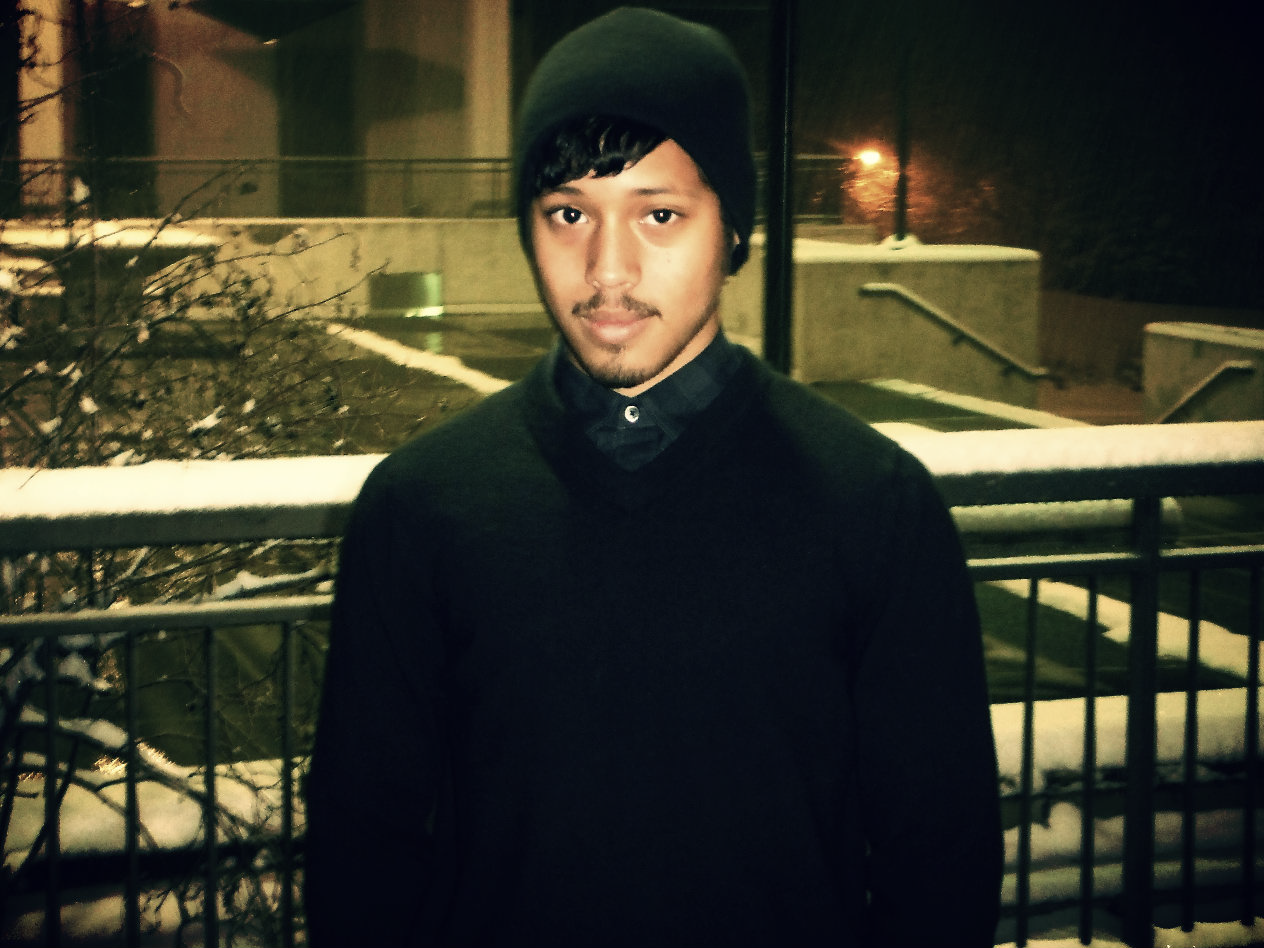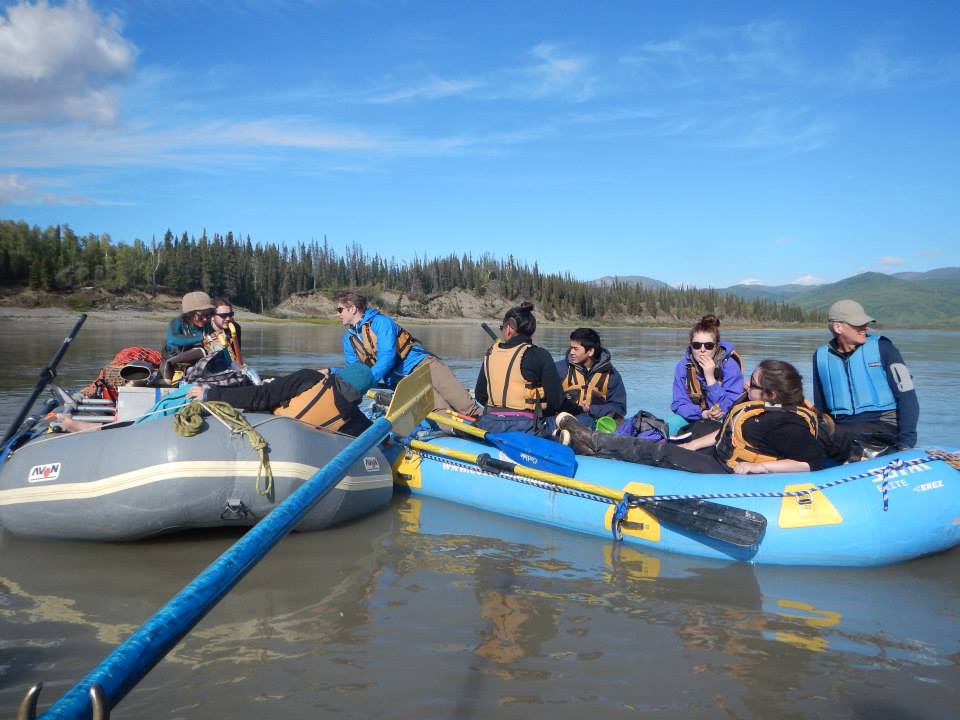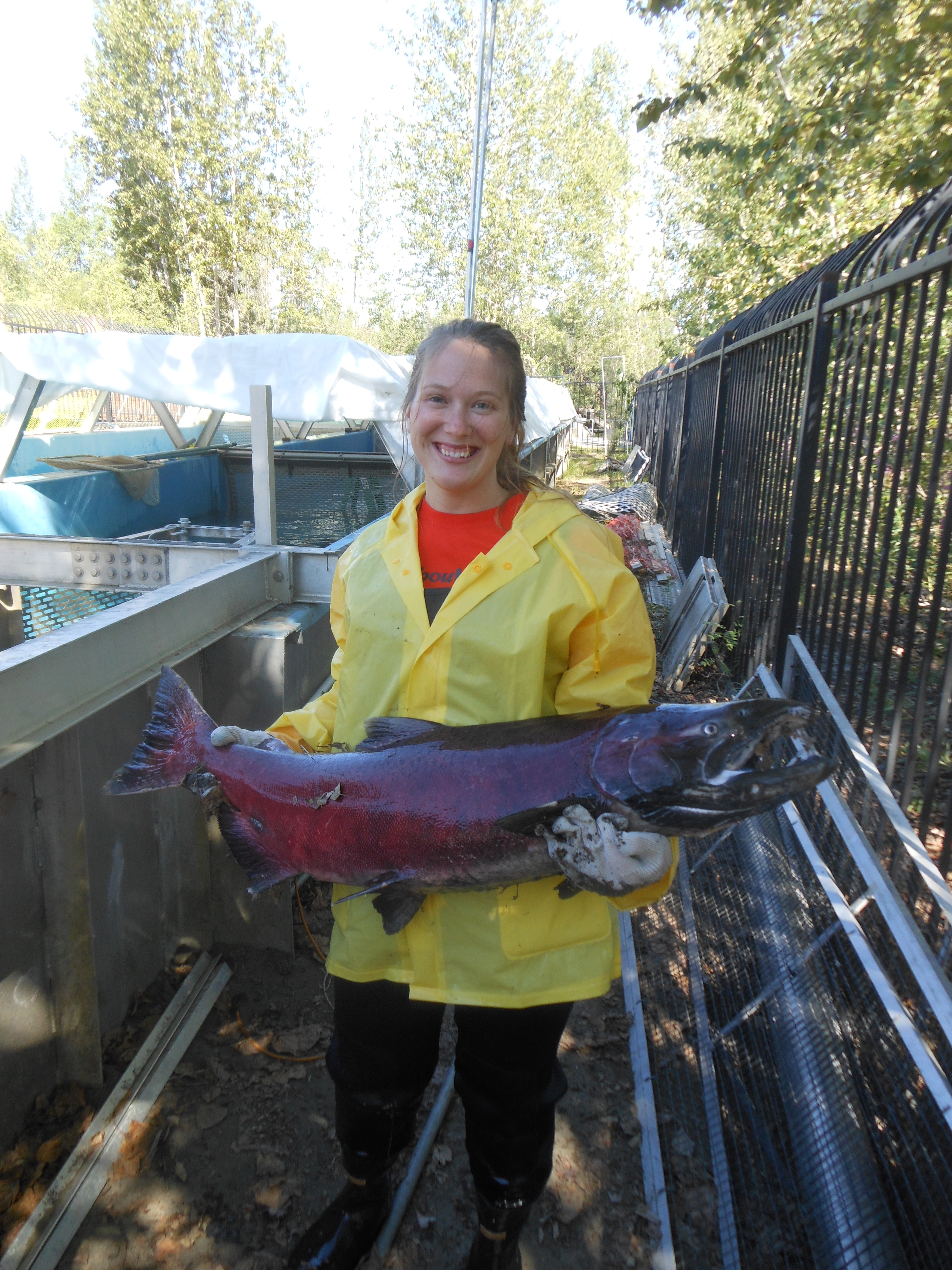By Hillary Hafner
The day my wrist broke, Instant Karma showed up in the mail. The prescribed painkillers directed to be taken every four to six hours, so the time spent staring at my wall was time spent pondering or reading. I was comforted by Sheldrake’s descriptions of much more severe injuries, like having to wear a leg cast designed to make his bones rub together for seven months. However, when I felt my own broken bones scrape each other, the wrenching pain shot up my arm and I felt dumb. I felt defeated. I felt that I had failed. I questioned my own motivation for pursuing this sport that once seemed crazy and thought of the people I’d fallen in with since coming to APU- my friends, the people who influenced me to try skiing for the first time last winter. In the summer we took turns turning on the teapot every four to six hours. I think those people are beautiful, and in the Alyeska Aid Shack it occurred to me that I had either met or come to know the most beautiful people on the sides or summits of mountains. The motivation behind learning to ski was curiosity- wanting to find what my friends felt every time they did it, seeking the force that shaped them. The answer was in the mountains, but how does a girl who grew up below sea level find herself there?
The first realization I had about skiing was that it is solely dependent on the self. A situation’s outcome depends on the attitude with which it is approached. Skiing is commonly described as “freeing,” and rightfully so. Modern living is typically governed by schedules, staying busy, ultimately: staying productive. The snow is indifferent. Our circumstances are not relevant. Skiing, although a dangerous endeavor, is an opportunity to face the elements head on. Sheldrake talks about danger as a positive addiction and asks, “What’s so bad about wanting to hold your own destiny in your hands, even if just for a few seconds?” (Sheldrake 16). Skiing is a constant play between action and reaction. A successful run begins with a single action, and the subsequent reactions follow. Sheldrake says, “Facing danger and getting away with it was deeply fulfilling. There was no drink or drug better than the rush of pure adrenaline” (49). Sheldrake says, “Velocity scrubbed the existential barnacles from the hull of my angst like a belt sander” (16). It’s a high speed game played with the existence-governing law of gravity. It is freeing because when we are in that moment, it is not us that matters, it’s the exchange between ski and snow.
Tracy from Challenge Alaska used the term “passion,” a word having its roots in the Latin “pati” meaning “to suffer or endure,” to describe the drive behind skiing. He also spoke of fear as a human experience. He said, “When it confronts us, we choose to conquer or run. When we conquer, we grow.” In the 8 days I skied Alyeska, I felt joy, terror, pride, anger, excitement, exhilaration, elation, freedom, compassion, validity; a stew of emotions. Until my second encounter with the slope “Mighty Mite,” I had forgotten my fear of heights. At the top, I paused for a brief exchange with some classmates. I tried to time it so that I’d be on the move before I froze, but one of them made a comment right at the threshold. I can’t remember the last time I was petrified. I peered down Mighty Mite. I saw a really steep slope that I really did not want to go down. It was time to grow exponentially, but I was fearful and reluctant. Sheldrake quotes alligator wrestling experts as saying, “Alligator wrestling is a lot like life itself. If you know what you want, don’t hesitate and don’t let go, for he who hesitates gets bit” (138). I hesitated on that run and ended up yard saling- my poles and skis went scattering across the slope. I hesitated a lot at Alyeska. The combination of speed and gravity was nerve racking, but mostly a challenge learning how to control it. Adding height to the combination summed up to a very scared me. When Sheldrake and his friend Pat are about to attempt skiing sand dunes, Sheldrake says, “Most people are physically capable of dune skiing. Overcoming their mental fears is the hard part” (166-7). They ski them successfully at a top speed of fifteen miles per hour. Sheldrake says, “Basically, you ride on top of a stubborn, slow motion wave” (167). Maybe that’s where I should’ve started. The sand dunes. Then snow. Eventually alligator wrestling. I found that the greatest thing about skiing, though, like alligator wrestling, is that it’s a palpable metaphor for the human life. The ever-changing terrain is our always changing circumstances. Sometimes we can’t see what’s coming, but we try to stay afloat. If we fall, we have to get up and keep going.
Despite physical and mental traumas, Sheldrake remains positive. He says, “I’ve lived my whole life with the sense that something particularly fine was about to happen to me-something that would solve all my problems and make life simple and clear… Even when the path ahead seemed tangled and dark, I felt the promise of a full future and I knew that all I had to do was wait” (97). He assumes the future will be simple and clear. He seeks simplicity and is optimally satisfied with the arrival of winter, an annual guarantee. By being pleased with simple things in the present, he will be happy in the future as well. As the proverb goes, “Bliss is a constant state of mind, undisturbed by gain or loss.” He notes that the passage from page 97 was inspired by a study on memory titled “The Mind of a Mnemonist,” a mnemonist being a person with an extraordinary capacity for remembering things. I believe that Sheldrake remembers the feeling so profoundly because it’s the state in which he lives perpetually. Living in a loop of joy and anticipation, he molds his own future to be a happy one. Maintaining optimism is key.
Spending the week with Sheldrake was significantly comforting. Before I could reach a state of utter woe, he made me grateful to have a broken wrist. In retrospect, part of me wishes the fall could have been avoided and, on occasion, that I had been born into skiing, but I’m glad the injury occurred when it did. Although I’m bummed to have missed out on the class, the broken wrist has given me something that wouldn’t have been gained otherwise. When I fell, I was thinking too far ahead of time, living in a moment that hadn’t yet arrived and leaving the current moment unattended. I had to tune a virtue I thought I already had: patience- respect for every individual moment. One can never assume the future. For the first week of recovery, when my mind wasn’t overtaken by the wooze of percocet or the ecstasy of a spoon handle shoved under my splint scratching an itch, all this reading and writing about skiing had me itching to go back out and try again. Sheldrake describes the value of waiting on page 98, saying:
“Why not live this way? Wait for what comes. ‘Deal with brute nature,’ as Thoreau said. ‘Be cold and hungry and weary.’ Make up your own names for each type of snow you ski, as the French, in the midst of revolution, made a name for each day. Wait!-I say-for nothing is finer than the arrival of what you have always been waiting for.”
So I’ll wait a little while until my next encounter with a snowy slope. I’ll do everything with one hand- patiently. I’ll walk through the snow as always, but see it in a different light and give it the same playful look I gave my horse each time he sent me catapulting into the dirt. Challenge accepted.
[author image=”https://sphotos-a.xx.fbcdn.net/hphotos-snc6/270900_10151023403410590_271458376_n.jpg” ]Hillary Hafner is from New Orleans, Louisiana. She came to APU in 2011 to study Marine Biology and has since become increasingly interested in the Outdoors Studies Program. Writing, volunteering, and working with horses are her favorite pastimes, but learning to ski has been the most challenging and rewarding.[/author]



One Comment
Emily Ashworth
This story is very relatable to me, because I have suffered so many sports related injuries. It is really hard coping with the fact that you may not be able to do the things you love in the same way. Your story is admirable to me because you found a way to see the bright side of your situation, which I know from experience is a very difficult task. I hope you have since healed from your injury and been able to ski again. I myself know as a skier that the thrill of going down the mountain is addictive.